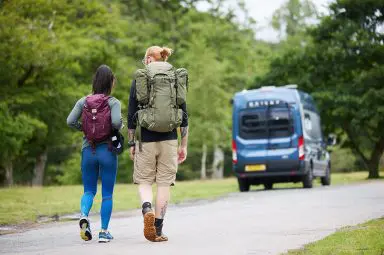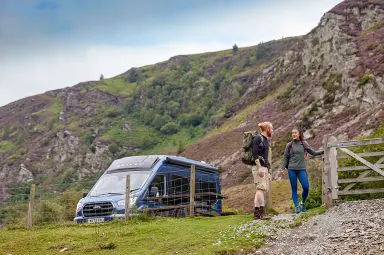The Brilliant Balkans Part III: Practical Advice
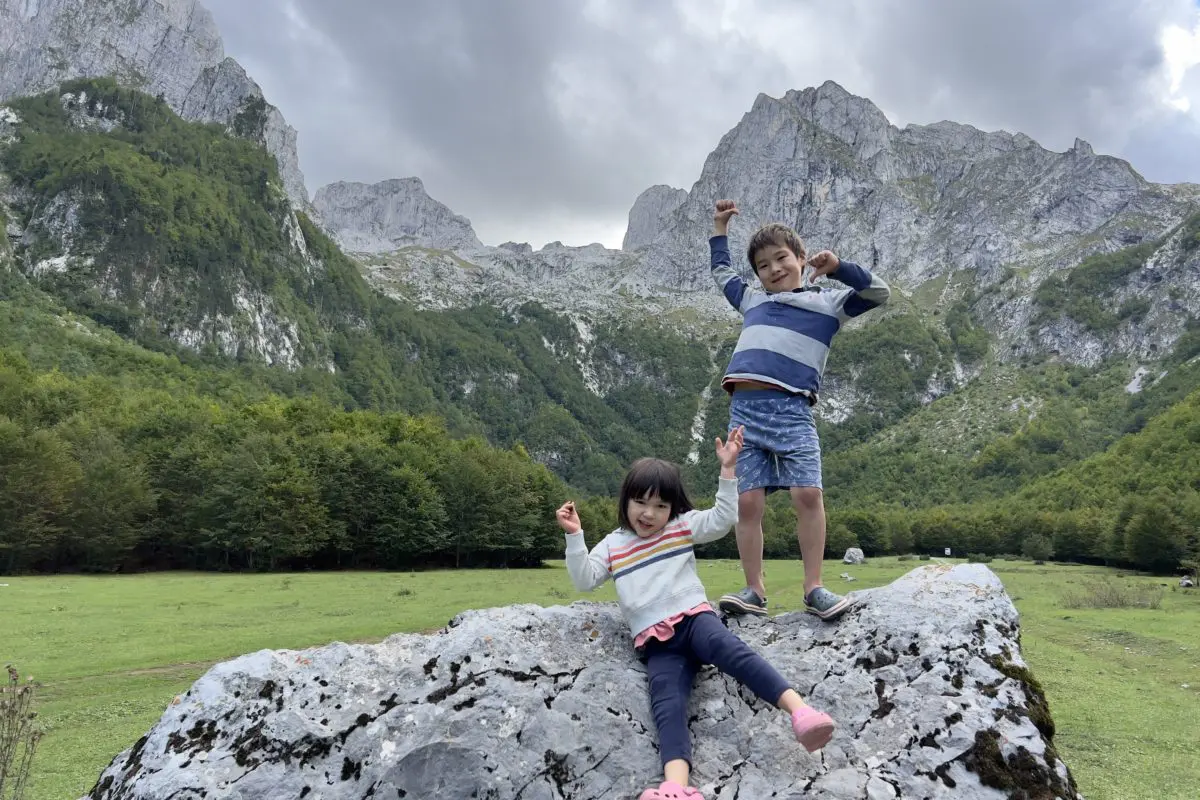
Life is full of lessons, none more so than when you’re travelling, and especially so when you’re heading to places a little off the beaten track. Places such as Bosnia & Herzegovina and Montenegro, places that can, if you’re not prepared, cause a few challenges along the way.
However, none of these challenges are insurmountable and none should put you off planning your own travels to a corner of the world that rewards those prepared to expand their horizons with an array of magical moments and experiences. In this blog we would like to share with you some of the lessons we learnt along the way, as well as practical advice to ensure you have the best possible experience exploring there.
Documentation
The main documents needed are passports with at least six months validity from date of entry into either country, and the original copy of your vehicle V5 form. It is important to note that you don’t need to carry a green card while travelling in the Balkans. However, you will need to buy additional vehicle insurance in Montenegro, which can be easily purchased at any insurance broker once you enter the country for a cost of €15 per fifteen day period. We used Lovren Insurance, which has offices throughout the country. In both countries you must register with the local police within twenty-four hours of arriving, a process that your campsite will easily be able to help with.
Currency
Bosnia & Herzegovina uses the Bosnian Mark, although many campsites and tourist places will accept Euros as well, with most places operating on a cash only basis. The exception to this is fuel stations and some of the bigger shops and restaurants in Mostar and Sarajevo. It is advised to always carry enough cash to cover a few days worth of travel. Montenegro uses the Euro, with card payments accepted far more widely than in Bosnia & Herzegovina.
Campsites
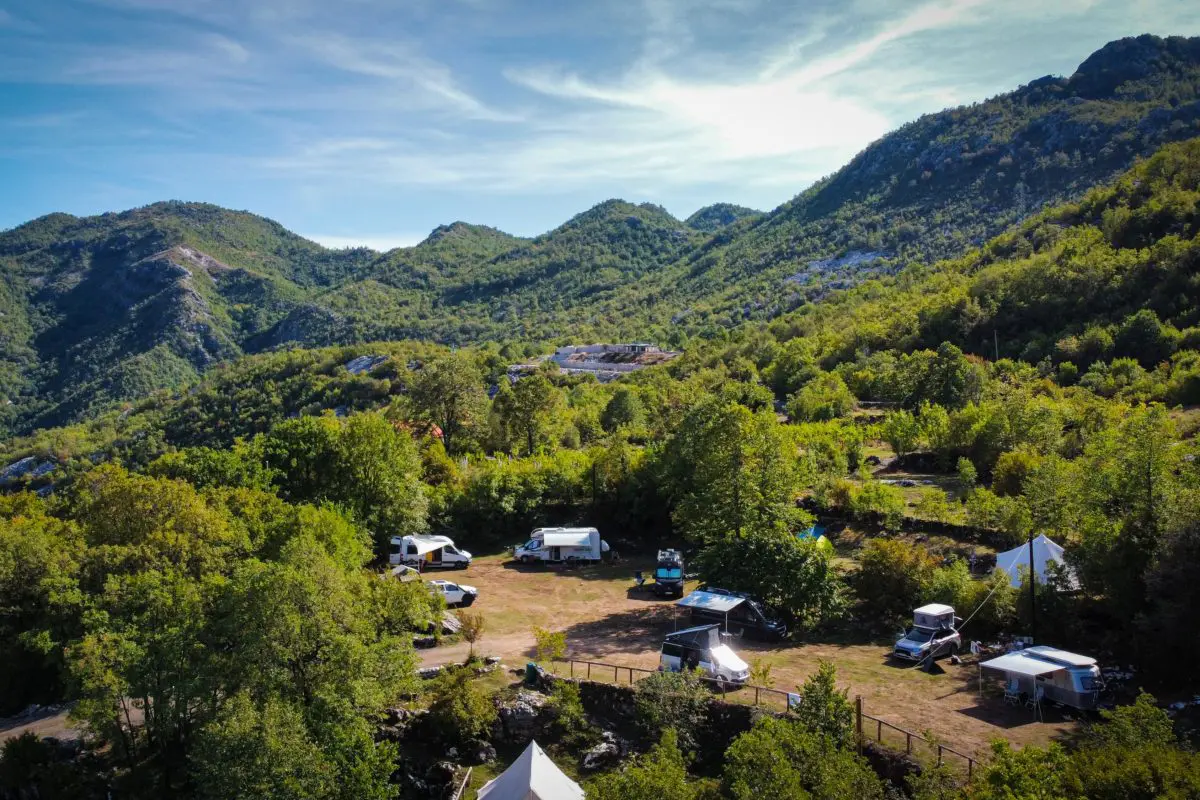
There are a wide range of campsites available in both countries, with Montenegro in particular offering an excellent selection of sites with many of the facilities you’d need. In Bosnia & Herzegovina it is a little more hit and miss, with more being simple places with basic facilities (albeit clean and tidy), although we didn’t stay in a single site that we would describe as bad. The thing to remember is that this is not France or Spain, and so long as you understand that and adjust your expectations accordingly you will have some magical stays in some very special locations. We also wild camped a lot in the Balkans, which is legal in both countries, other than in areas that clearly state otherwise. As always, if you are wild camping leave no trace and respect the environment around you so as not to ruin it for others.
Safety
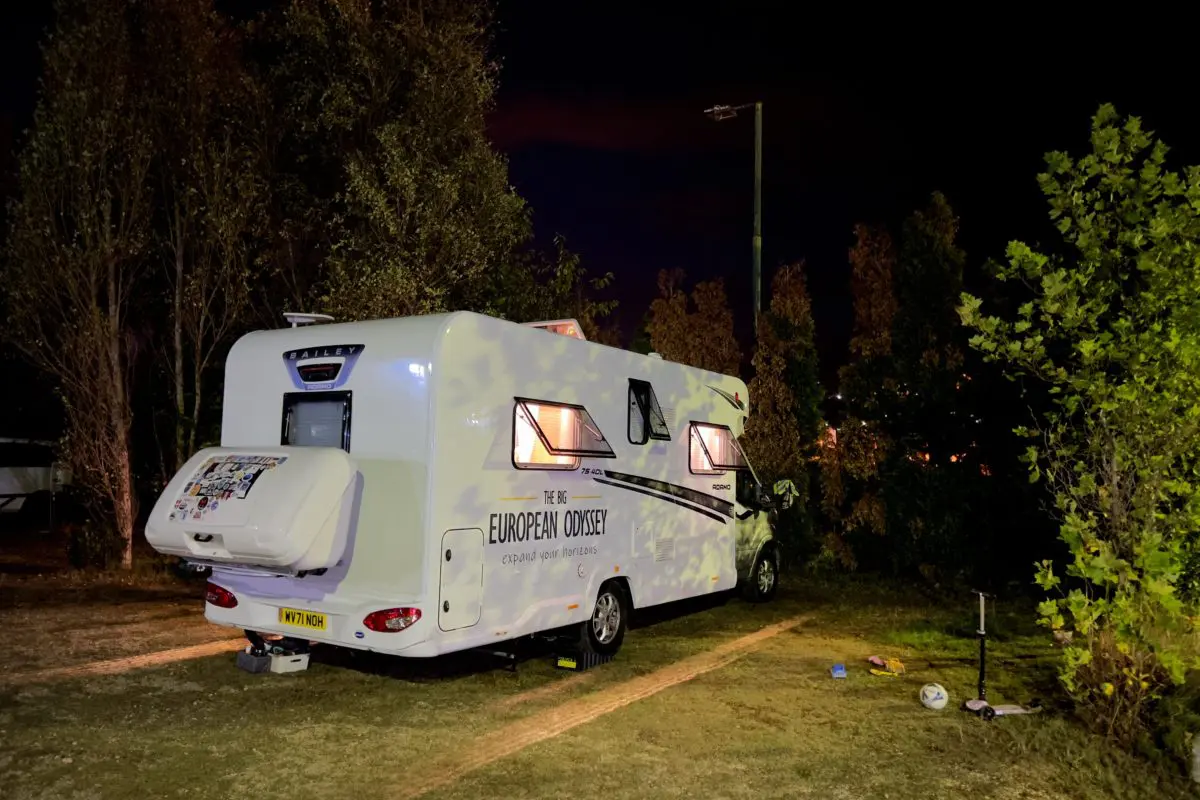
The main question we are asked from others looking at the Balkans focuses on safety. While nowhere is 100% safe we had zero issues with safety during our time here, and what’s more we never once felt unsafe or in situations that concerned us. In fact we would go as far as to say that we have not been made to feel as welcome as we did in the Balkans anywhere else on our travels. The people we met were so grateful that we had decided to travel to this region, and went out of their way to ensure we had the best possible time. As always it’s about being sensible, respecting where you are and, in our opinion, making an effort to submerge yourself in the local culture and engage with the people that make these places so special.
Road Quality
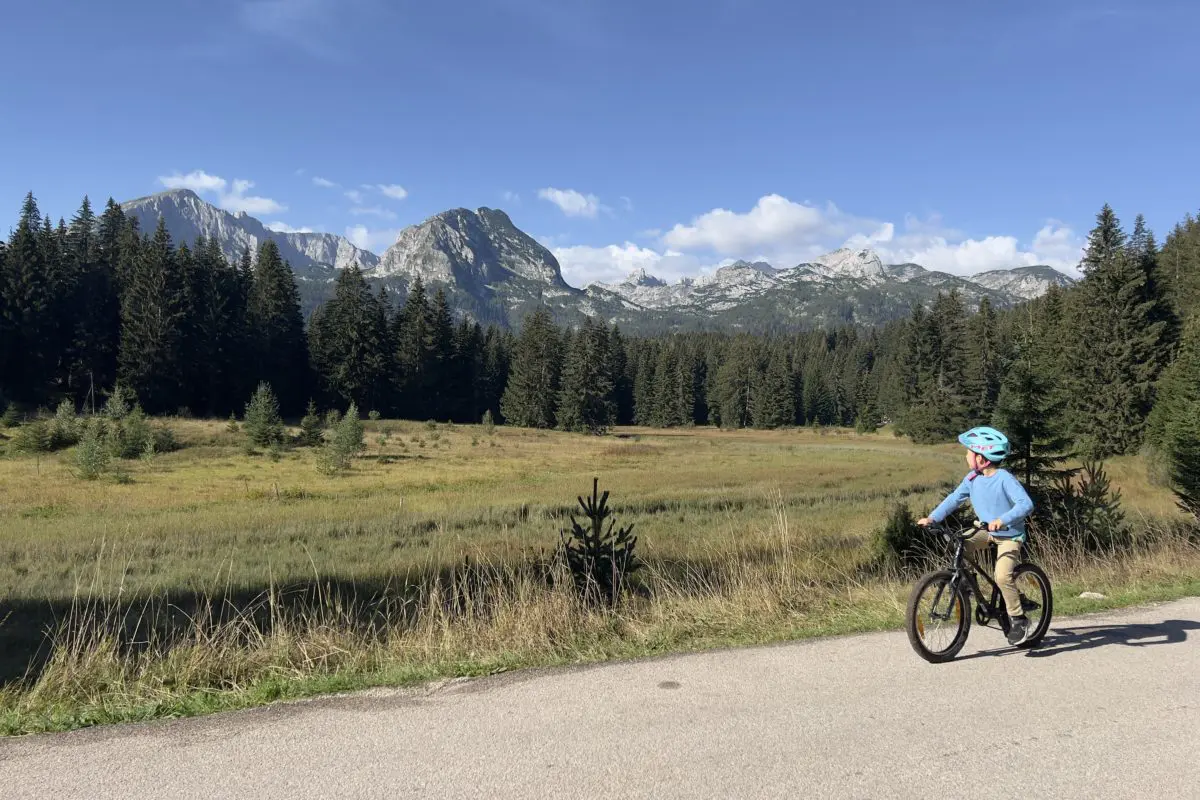
On the whole the roads in both Bosnia & Herzegovina and Montenegro are in good condition, so long as you don’t try and head down any really small lanes. They are well signed, both in terms of directions as well as weight limits and any potential bridge heights, and motorhome friendly. The exceptions to this are a few of the Panoramic Roads in Montenegro, which are not suitable for larger vehicles, most notable of which being Panoramic Road One between Zabljak and Trsa in Montenegro. It is also worth noting that police actively patrol the roads in both countries checking for speeding drivers, so make sure you respect the speed limits at all times.
LPG
We have a GasLow refillable LPG system in our motorhome and there is LPG available at nearly every fuel station in both countries.
We are happy to answer any specific questions people might have regarding travel to the Balkans, so feel free to contact us directly at @marcusleachglobal and @our.roaming.odyssey on Instagram and @MarcusGLeach on Twitter and we will do our best to answer honestly and informatively.
Previous
The Brilliant Balkans Part II: Montenegro
Next
Our Motorhome Travellers Guide to Dubrovnik
Latest news & events
See all news & eventsChipping Sodbury Spring Sales Event
BADMINTON ROAD, CHIPPING SODBURY, BRISTOL
West Country Motorhomes Open Weekend
BRISTOL ROAD, BRENT KNOLL, HIGHBRIDGE, SOMERSET
Swindon, Oxford and Reading Caravan and Motorhome Centre Easter Sales Event
GREATFIELD, ROYAL WOOTTON BASSETT, WILTSHIRE
Grantham's Midlands Caravan & Motorhome Season Ready Show
SPITTLEGATE LEVEL
GRANTHAM
